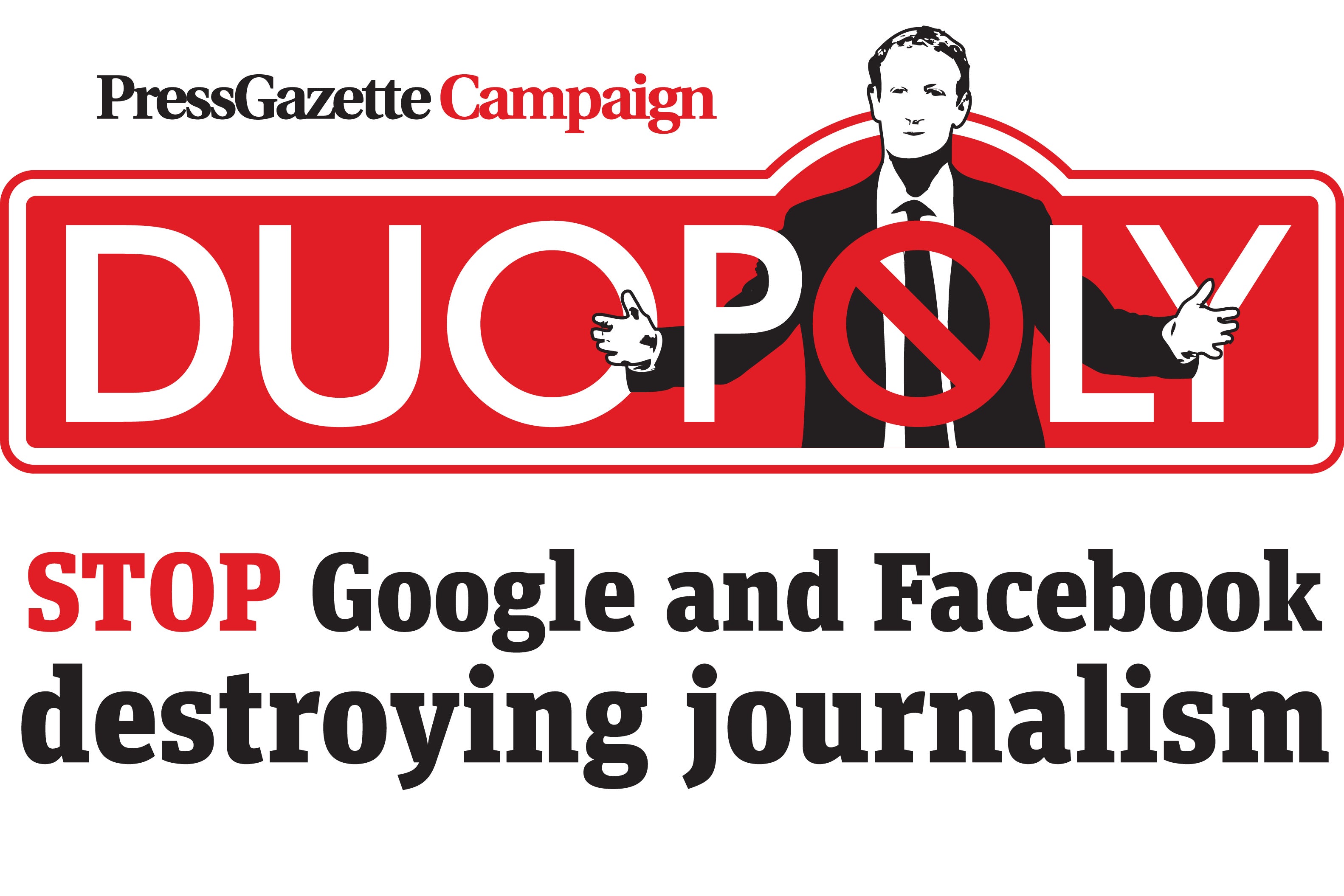
News organisations in the US have sought to strike a blow against one of the central legal obstacles stopping them competing more fairly with digital giants Google and Facebook.
They are seeking a change in competition law which would enable them to negotiate collectively with the digital giants.
Incredibly, as I understand it a similar problem applies in the UK.
Google has an effective monopoly over search advertising, and Facebook dominates social media, meaning the pair can dictate terms to publishers.
They have become so big that it is almost impossible for any online news publisher to survive without doing business with them.
Yet if all the UK news publishers were to sit around a conference table and agree on joint commercial terms of engagement with Google and Facebook they would run the risk of falling foul of competition law.
Looking at Internet Advertising Bureau figures for 2016, I estimate that Google and Facebook took at least £6bn of the £10.3bn spent on digital advertising in the UK last year. That is around 15 times the combined digital advertising income of every national and regional newspaper in the UK.
There is a big question mark over whether UK news publishers could ever bury their differences for long enough to agree a joint negotiating position with Google and Facebook.
Some, like The Independent and Buzzfeed, seem happy with the current system.
The tragedy is that for some regional newspapers, time is running out. The pace of print decline is quickening and despite vast digital expansion the revenue is not going to them.
Last year the major UK regional newspaper groups increased their website traffic by 40 per cent, yet their combined digital advertising revenue fell by 3.4 per cent ot £193m.
The News Media Alliance represents 2,000 news organisations in the US.
Its case highlights an anomaly. Orange growers in California can work collectively to get a better deal from supermarkets, but news producers are prevented by law from working together to stop themselves being squeezed out of the market by the dominance the Duopoly.
The News Media Alliance said all it wants is the ability to “have concrete discussions with the two dominant distributors of online news content, Google and Facebook, on business model solutions to secure the long-term availability of local journalism produced by America’s newsrooms”.
It said: “Consumer demand for immediate, reliable information is growing but the current online distribution systems are distorting the flow of economic value derived from good reporting.
“Google and Facebook dominate online news traffic and consume the bulk of digital ad revenue. Because of this digital duopoly, publishers are forced to surrender their content and play by their rules on how news and information is displayed, prioritised and monetised.
“These rules have commoditised the news and given rise to fake news, which often cannot be differentiated from real news.
“Antitrust laws are intended to address the injury inflicted by dominant monopolistic companies. Yet when it comes to the media, existing laws are having the unintended consequence of preventing news organisations from working together to negotiate better deals that will sustain local, enterprise journalism that is critical to a vibrant democracy.
“News organisations are limited with disaggregated negotiating power against a de facto duopoly that is vacuuming up all but an ever-decreasing segment of advertising revenue.”
We have the same fight in the UK – as highlighted by Press Gazette’s Duopoly campaign.
The local news market in London has already been hollowed out to the extent that some boroughs, such as Kensington and Chelsea, have no dedicated journalists holding politicians to account.
The rest of the UK faces going the same way unless action is taken soon to fix the broken economic model of local news.
Email pged@pressgazette.co.uk to point out mistakes, provide story tips or send in a letter for publication on our "Letters Page" blog
